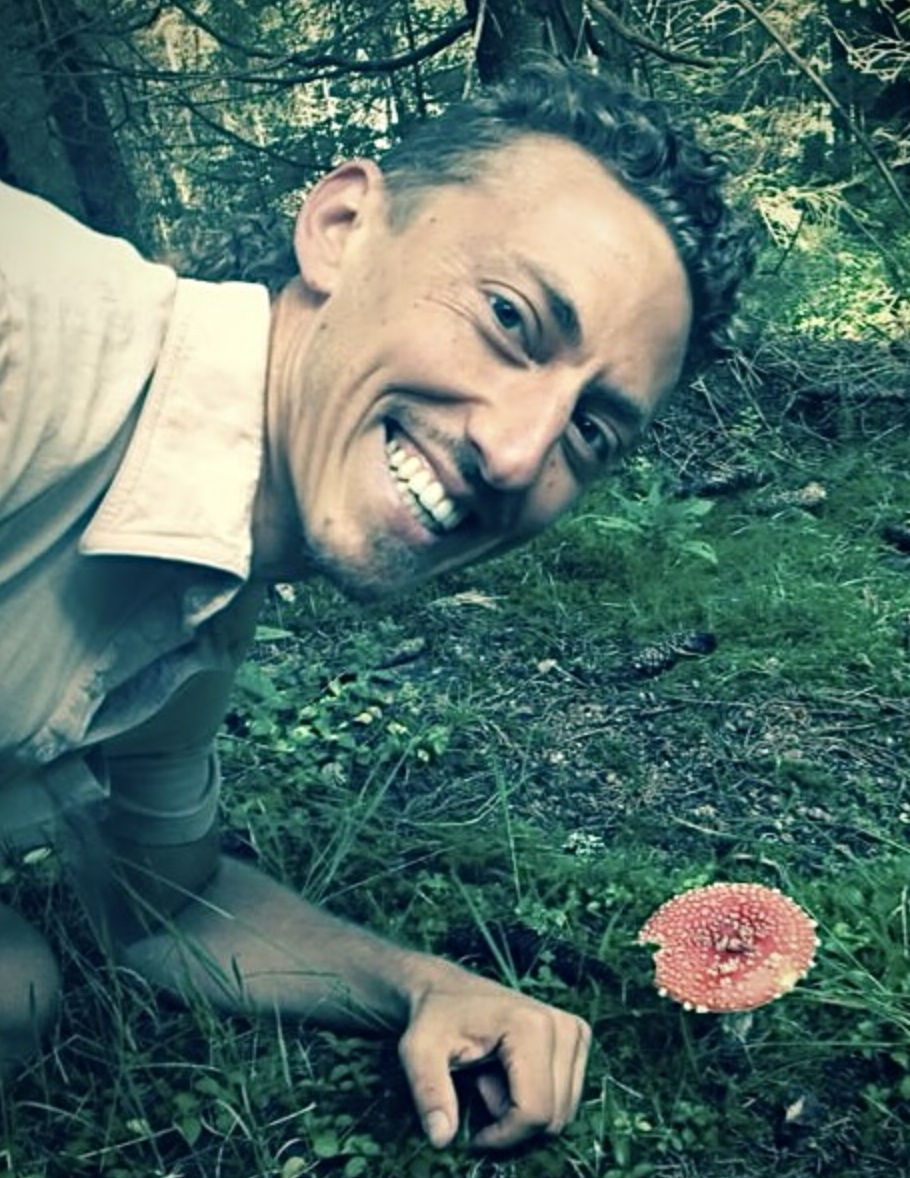
Yogi Hale Hendlin is an environmental philosopher and public health scientist. Currently Assistant Professor of Philosophy and member of the Dynamics of Inclusive Prosperity Initiative at Erasmus University Rotterdam, Hendlin is also a member of the The Center to End Corporate Harm at the University of California, San Francisco, and Principal of the Feral Ecologies Lab. Editor-in-Chief of the journal Biosemiotics, Hendlin is also editor of two books (Food and Medicine: A Biosemiotic Perspective and Being Algae: Transformations in Water, Plants). Hendlin’s work investigates ecologies of meaning, and takes seriously the implications of 5EA cognitive science that experience is distributed throughout many dimensions and emerges ecologically as an outside-in affair.
Colloquium Presentation: 24 October 2025, 3:30-5pm (Room G17, Mood Disorder Centre, Sir Henry Wellcome Building)
Fractal Ecologies and Ecodelics
Abstract
Richard Doyle’s conceptualization of entheogens not as psychedelics (mind- or soul-manifesting) but ecodelics (ecology-manifesting) repositions Osmond’s 1956 definition of substances “producing expanded consciousness through heightened awareness and feeling” to locating the relationship of psychedelics as one from the outside-in. Rather than thinking of set, setting, and matrix as afterthoughts, the pharmakon of traditionally contextualized psychedelics was precisely their ecodelic nature. This relationship between non-local, symbiotic logics and non-local, symbiotic ecologies understands ‘eco’ not just as a material substrate, but acknowledges that the web of life exists with its bacteria, viruses, plants, fungi, animals, and other analogues, mutualistic, commensal, and parasitic, in equal abundance in the non-material realms. This ecological theology then, understands ecodelics as the opening to other ecologies — with their beauty and their dangers, no different than we find in the physical lush yet potentially deadly ecosystems on this planet. This talk will explore the potential nature of these fractal ecologies and the various posited ecodelic approaches by Doyle and others, as well as the implications and ethics surrounding creating structures (such as machines and AI) which may give ‘body’ in this realm willy-nilly to creatures not normally embodied in our realm.